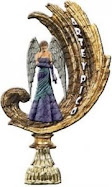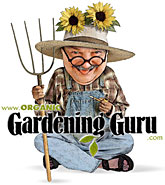My dad, in July of 2009, when he was 82.
Another long interruption in blogging. Another death. My sister Susan died two and a half years ago. This December, on the Wednesday before Christmas, my father died.
Connie, my mother, had called me that Monday to report a sudden decline over the weekend: Friday Dad could walk a kilometer, over half a mile; Saturday he couldn't stand up.
On the phone, Connie and I went back and forth about whether I should fly out next day and decided it would be better to wait. More than likely Dad would linger on; more than likely there'd be greater need next week or next month. The staff at the nursing home, downstairs from Connie's apartment, had dozens of stories about residents who'd lived for months after such setbacks, and as far as Connie could tell, without eating. When Con had asked one of the most trusted nurses whether they should start palliative care, Amelia had laughed and said she didn't think it was time for that quite yet.
That was Friday. But on Saturday he couldn't stand. Amelia was off that weekend. When she came back on Monday evening, she was shocked. It was time, she told Connie. Time to start palliative care.
On Tuesday, Connie called me again to say that Dad was worse. I booked a flight for the next morning. He died while I was en route to Toronto.
Couldn't he have waited, just a few hours? But he didn't know I was coming. Couldn't I have taken a flight the day before? But I didn't know he was dying.
It had been a long, slow decline over the years of his dementia, a swifter slide since his stroke* two Novembers back. And at the end, just a few days.
Given how illness and death in the Western world drag on and on these days, he was lucky: he spent all of three days in bed. We think it was cancer that killed him. Last summer Connie had found a lump under his jaw, frightening reminder of the cancer of a salivary gland that he'd been treated for in 1962, 1974, and most aggressively in 1986. That time, the surgery had to go dangerously close to major nerves.
“When I get in there, if I have any choice, are there any nerves or muscles crucial to favorite activities?" the surgeon asked Dad before operating.
And Dad, a consummate host, had responded thusly: “I would like to be able to reach across a table to pour a glass of wine for a guest.”
The almost full-page obituary in Toronto's Globe and Mail overestimated his family size (four, not seven) and under-reported his peace work, but it did get his tone right (he was the guy who quit his job at an insurance company when told to buy the same suits and car as the executive he wanted to replace) and it featured a beautiful picture taken by Connie on one of the bike trips she and Dad took together in southern France: Dad, smiling, is pouring a glass of wine for himself–having already poured one for her. (Unfortunately, the picture doesn't appear in the on-line version, and I don't have a digital copy.)
After the stroke in November of 2009, Dad recovered his ability to walk, but his right hand remained cramped and nearly useless, and he could not talk. Occasional words emerged; most frequently, the syllable “ho,” as in “ho-ho,” which he used as all-purpose social implement in his last year. When we walked together down the hall I'd bump his shoulder once, twice; the third time he'd duck and toss me a wicked smile. Then we'd walk on, bumping shoulders or swinging hands, and at each bump or swing he'd say, “Ho-ho.”
He would also, Connie tells me, come out with the occasional "Oh, come on," (glower) at unwelcome physical assistance.
For a while, he could still sing. The last time he sang out his full-throated bass was when everyone in the residence, staff and patrons alike, burst into “O Canada!” last February, when Canada beat the U.S. for Olympic hockey gold.
“He sang the words?” I demanded, when Connie told me the story. This was several months after the stroke.
“Yes!” she crowed. “I didn't even know he knew them!”
I find it touching and amusing that his last song was the national anthem of his adopted country, to which he'd moved in his thirties. He had grown up singing “The Star-Spangled Banner,” but had no great affection for it or its martial theme. A World War II veteran, my father became an active pacifist, helping to found Science for Peace and to establish both an endowed Chair in Peace Studies and a peace studies program at the University of Toronto, the Trudeau Center for Peace and Conflict Studies. National anthems, with their appeal to a simplistic, saber-rattling patriotism, did not interest him.
But apparently he threw himself into one, that day, and I can see why. It seems a fitting way to celebrate that event.
Eventually, though, even music left him. First he stopped singing, at all. This past fall, he did not always appear even to enjoy the music Connie played for him in his room—Bach, the Sting, Ella Fitzgerald.
Connie says that trees remained one of the few things he responded to, right to the end. I believe it. On some of the last walks I took with him, he'd stop before a huge tree and spread his hands, marvelling.
He was a mathematician, a peace activist, an intellectual and writer, but one of the things that remained longest was a capacity to respond to beauty in the natural world. The last word he said to me was “Look!” This was last April, as we took a walk together amongst the houses and gardens near my parents' retirement home. He was pointing at a white lilac in bloom against a brick wall, simple, stunning, spare.
Another crucial quality remained to the end: he always responded to Connie, whom he loved beyond words.
What matters most in life? Love, death, and the garden—a bit of beauty in a stony world.
__________________________________
*Some of that story is recorded here:
My Father's Stroke, June 8, 2010
Down the Garden Path, June 11, 2010
The back-story I: Bicycles, June 18, 2010
Backyard Mushrooms + The back-story II: The Fall, July 6, 2010
Minnesota is not Montana: The Father Report, July 30, 2010

 Subscribe to RSS feed
Subscribe to RSS feed



A lovely tribute to your father. I’m sorry you didn’t get to say goodbye to him at the end. Reading his obituary, it seems that this is true of your mother, too. Perhaps it just wasn’t meant to be…
This was not a blog post, or an obit, but something much more, much more worthy.
As my mom says, getting old sucks. But in that pic above I’d have guess your dad was no more than 70. Maybe that says something about the man, things you hint at above. My thoughts are with you.
My heart goes out to you and Connie. I remember I first happened on your blog, when your sister died.
I don’t normally post, but read quite a bit. But I couldn’t help but be moved by your post. I am sorry for your loss.
Dear, dear Kate,
Your beautiful writing is well worth waiting for. So glad to see your post. What a great photo of your dad! My brother Tad drove from northern Michigan to Chicago as our dad lay dying and he missed him by 20 minutes. He did get to sit with the body, but it was so sad to not make it. I love that you close with mention of your dad’s love for Connie. They were quite devoted. Call me!
prayers for you and your family…
Thanks, Amanda. Not being there was hard, but I've pretty much let it go. I'm just glad I was there that week.
Bless you, Benjamin, but that's a generous tribute. About the photo—I was astonished when I happened on it and saw how recent it was. Considering his age and condition—he'd had Alzheimer's for years at this point—he looks pretty damned good.
But your mother is right: getting old sucks.
Elephant's Eye You'd think I was making it up, wouldn't you? Thank you for stopping by—I definitely want to check out your blog.
Thanks, Thomas, for making an exception to your silent observer status. I appreciate it.
Sally, dear friend—it's always lovely to see that you've stopped by and left me a message. Thank you. I don't think I'd remembered that Tad had missed seeing your father, so nearly. I felt I lost something because I did not even get to see my father's body—it had already been removed. Connie says this may have been for the best; he was apparently down to less than 80 pounds. She struggles now to remember more of the good times, years back, and not to let memories from this last dreadful year overwhelm her. So maybe she's right—and I'm lucky to have missed seeing that.
Dirty Girl Gardening— Thanks for stopping by, and for the sympathy.
–Kate
It was a very nice and also a sad story.
Thank you so much, Arash, and thank you for stopping by.
–Kate